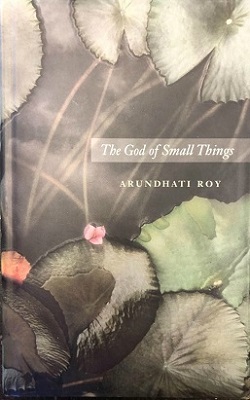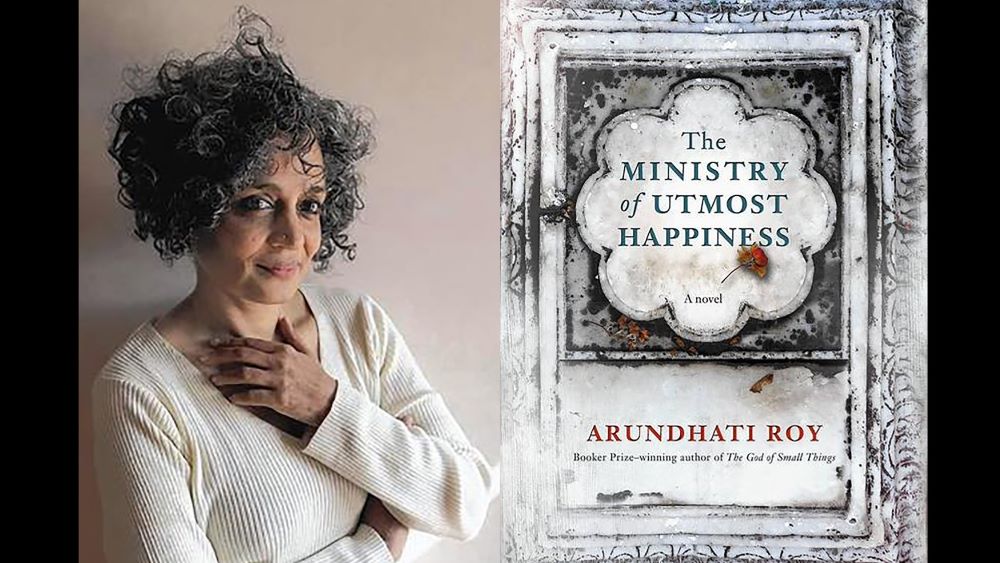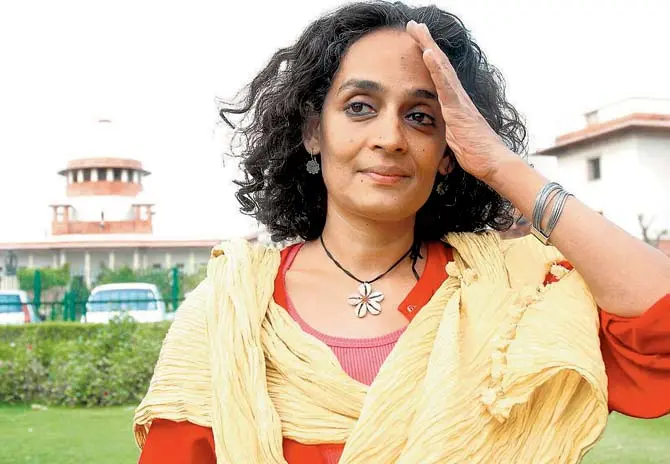
Roy’s fearlessness in challenging oppressive systems, her unwavering commitment to the marginalized, and her passionate advocacy of human rights
SHOUKAT LOHAR
Arundhati Roy, an acclaimed Indian author and activist, has emerged as a prominent voice of dissent and resistance through her writings. Her literary works, both fiction and non-fiction, delve deep into social and political issues, challenging dominant narratives and advocating for the marginalized. Roy’s life and her body of work, including her celebrated novels “The God of Small Things” and “The Ministry of Utmost Happiness,” have left an indelible mark on contemporary literature and activism.
Early Life and Background
Arundhati Roy was born on November 24, 1961, in Shillong, Meghalaya, India. She spent her childhood in Kerala, where her mother was a social activist and her father, a Bengali tea planter. Roy’s upbringing in an atmosphere of political awareness and social consciousness deeply influenced her worldview and later found expression in her writings.
Roy pursued her studies in architecture, earning a degree from the School of Planning and Architecture in New Delhi. Although she practiced architecture for a brief period, her passion for writing eventually led her to focus on literature and activism.
Writing Career and School of Thought
 Arundhati Roy’s writing is characterized by its lyrical prose, vivid imagery, and a keen observation of the human condition. She combines elements of magical realism with a sharp social critique, exploring themes of caste, gender, religion, and political power dynamics. Roy’s works are deeply rooted in her experiences and reflect her commitment to social justice and resistance against oppression.
Arundhati Roy’s writing is characterized by its lyrical prose, vivid imagery, and a keen observation of the human condition. She combines elements of magical realism with a sharp social critique, exploring themes of caste, gender, religion, and political power dynamics. Roy’s works are deeply rooted in her experiences and reflect her commitment to social justice and resistance against oppression.
Roy’s writing aligns with the tradition of postcolonial literature, which seeks to challenge and subvert the dominant narratives imposed by colonial powers. Her work also draws inspiration from feminist and leftist ideologies, emphasizing the importance of grassroots movements and the struggles of the marginalized.
“The God of Small Things”
Arundhati Roy’s debut novel, “The God of Small Things,” published in 1997, catapulted her to international acclaim. The novel, set in the southern Indian state of Kerala, tells the story of the twins Rahel and Estha and their fraught childhood experiences. Roy skillfully weaves together themes of forbidden love, social hierarchies, and the impact of colonialism on Indian society.
“The God of Small Things” explores the complexities of caste and class divisions, as well as the destructive forces of patriarchy. Roy’s evocative prose and nonlinear narrative style create a compelling and emotionally charged reading experience. The novel received widespread critical acclaim and won the Booker Prize in 1997, firmly establishing Roy as a significant literary voice.
 “The Ministry of Utmost Happiness”
“The Ministry of Utmost Happiness”
After a hiatus of two decades, Arundhati Roy published her second novel, “The Ministry of Utmost Happiness,” in 2017. The novel delves into the lives of a diverse cast of characters, including Anjum, a transgender woman, and Tilo, a political activist. Roy skillfully intertwines their stories with broader political events, such as the conflict in Kashmir and the rise of Hindu nationalism in India.
“The Ministry of Utmost Happiness” continues Roy’s exploration of social and political issues, delving into themes of identity, displacement, and the search for belonging. Through her vivid storytelling, Roy shines a light on the struggles faced by marginalized communities and questions the oppressive systems that perpetuate their suffering.
Arundhati Roy’s activism is as significant as her literary contributions.
Taking a Stand: Courageous Activism
In addition to her fictional masterpiece, Arundhati Roy has penned numerous non-fiction works that delve deep into critical socio-political issues. Her collection of essays, including “The Algebra of Infinite Justice,” “Listening to Grasshoppers,” and “Broken Republic,” provide a searing critique of the prevailing social order. Roy exposes the systemic injustices, the erosion of civil liberties, and the exploitation of marginalized communities, often challenging conventional narratives and mainstream media. Her writing compels readers to question the status quo and actively engage in the pursuit of a more equitable society.
 Environmental Activism: Protecting Mother Earth
Environmental Activism: Protecting Mother Earth
Arundhati Roy’s activism extends to environmental issues, particularly highlighting the destructive impact of large-scale development projects on ecosystems and indigenous communities. She has vehemently opposed the construction of dams, the mining of natural resources, and the expansion of corporate influence in rural areas. Roy’s work emphasizes the need to prioritize sustainable development, ecological conservation, and the rights of those most affected by environmental degradation. Her passionate advocacy for environmental justice has earned her recognition as an influential voice for the planet.
Conclusion
Arundhati Roy’s activism and non-fictional works have left an indelible mark on the world, inspiring countless individuals to question established power structures and fight for justice. Her ability to merge fiction with activism, as showcased in “The God of Small Things,” has paved the way for a unique approach to addressing social and political issues. Roy’s fearlessness in challenging oppressive systems, her unwavering commitment to the marginalized, and her passionate advocacy of human rights.
_________________
 Shoukat Lohar is Assistant professor in English at Mehran University of Engineering and Technology Jamshoro. He can be reached at Shoukat.ali@faculty.muet.edu.pk
Shoukat Lohar is Assistant professor in English at Mehran University of Engineering and Technology Jamshoro. He can be reached at Shoukat.ali@faculty.muet.edu.pk